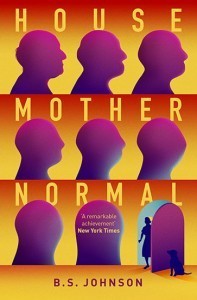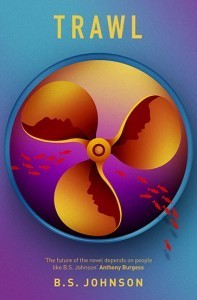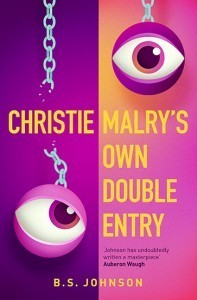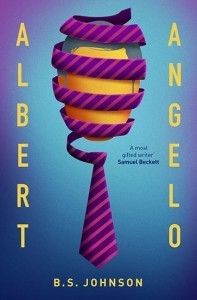Jonathan Coe's Blog
August 11, 2015
David Nobbs 1935-2015
I’m sorry to say that the great British novelist and television writer David Nobbs died a few days ago.
As many of you will know, David was one of my favourite writers. I first read his novel The Fall and Rise of Reginald Perrin in the mid-1970s, shortly after the TV series of the same name had started airing on BBC 1. It had the most profound effect on me. It’s no exaggeration to say that everything I try to do in my own writing - the combination of comedy and melancholy, of social commentary and farce - can be traced back to my encounter with this one novel. In a just world, it would now be published as a modern classic, and Reginald Perrin would be recognised as the British equivalent of Updike’s Rabbit Angstrom, or Richard Ford’s Frank Bascombe.
I was lucky enough to become friends with David and even luckier to have him adapt one of my own novels, What a Carve Up!, for radio - which he did brilliantly. We made several appearances at festivals together and these pictures are a memento from a trip we made to Barcelona last year.
This particular trip came about because a Spanish edition of The Fall and Rise of Reginald Perrin had just appeared, and a very bright young Spanish critic and novelist, Kiko Amat (the bearded guy in these pictures) had spotted the affinities between David’s book and What a Carve Up!. Kiko was running the Primero Persona festival and wanted to put on an event with the two of us. The idea was that we should be sitting on a bench as if we were in a railway compartment, with the British countryside back-projected behind us, and would have an informal, 45-minute conversation about British satire and comedy. Of course, this being Spain, we didn’t get on stage until about midnight, by which time David was extremely tired and we were both a bit the worse for Rioja. To compound the situation, the next event was a conversation with one of Spain’s most popular boy bands and the audience was almost entirely full of teenage girls who had no idea who we were. David loved the absurdity of all this, as he loved absurdity wherever he found it. Earlier that day we’d met up with Irvine Welsh at a restaurant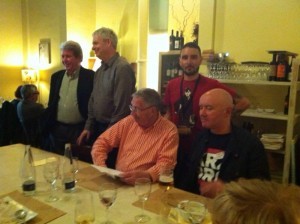 (David and Irvine always got on very well, and had tremendous mutual respect), then David and I walked down to the Rambla de Mar for a long, late lunch. He was my parents’ age but I never felt any sense of a generation gap, and this is my final, clearest and best memory of him: sharing a seafood paella together that afternoon, sitting beside the Mediterranean, and talking for hours about (what else but …) comedy.
(David and Irvine always got on very well, and had tremendous mutual respect), then David and I walked down to the Rambla de Mar for a long, late lunch. He was my parents’ age but I never felt any sense of a generation gap, and this is my final, clearest and best memory of him: sharing a seafood paella together that afternoon, sitting beside the Mediterranean, and talking for hours about (what else but …) comedy.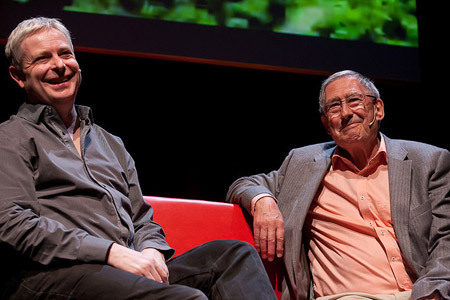
July 17, 2015
Music
After years of making music privately, Jonathan has finally gone public with some of his work in this field.

An album of his instrumental pieces, Unnecessary Music, can now be found on bandcamp. 
Also, an album of songs by his student band The Peer Group is now available on Amazon, iTunes, emusic and spotify.
June 15, 2015
Eleventh novel in November
Jonathan is delighted to announce that his new novel Number 11: or, Tales that Witness Madness is now complete and will be published by Penguin on the 11th November (the 11th of the 11th, in fact). It is a contemporary, satirical novel set in Britain during the years 2003-2015. Some characters reappear from What a Carve Up! as the novel examines the continued influence of the Winshaw family and their heirs on the political and cultural life of the nation.
Please click here for further details.
November 16, 2014
Some snippets of news
Last week my agent received an email from a reader in Bristol which came directly to the point: ‘Please would you ask your client Jonathan Coe to update his website? It seems untouched since January.’
Well, it’s a fair cop.
I will be honest and say that I don’t find blogs very easy to write – also, I would rather be sitting down to write my new novel - so I’ll make this one pretty functional and just bring readers up to speed with some things I’ve been involved with this year which may have gone under their radar.
An ebook of my short stories came out in June. It’s called Loggerheads and Other Stories 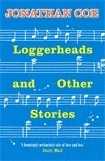 and you can buy it from either Amazon or Penguin. It’s quite short (74 pages) but there are some previously unpublished items in here and people might be interested in one or two of the stories which forge connections between Expo 58 and The Rain Before It Falls.
and you can buy it from either Amazon or Penguin. It’s quite short (74 pages) but there are some previously unpublished items in here and people might be interested in one or two of the stories which forge connections between Expo 58 and The Rain Before It Falls.
In July at the Collisioni Festival in Barolo I finally went public with my music, in a short concert with four wonderful Italian musicians led by Massimo Giuntoli. We played an hour’s worth of my tunes as well as a couple of ‘Canterbury’ standards – Alan Gowen’s ‘Arriving Twice’ and Pip Pyle’s ‘Fitter Stoke Has a Bath’. You can see some photos from the rehearsals and performance at Massimo’s website here.
In September I made my first ever visit to LA to do an interview about Expo 58 with Michael Silverblatt for his famous NPR programme Bookworm. It was a great interview and you can listen to it here.
Last month shooting started in France on Michel Leclerc’s feature film adaptation of La Vie très privée de M. Sim. I’m thrilled that the great Jean Pierre Bacri is taking on the title role. I stopped over in Paris recently to have lunch with Michel who showed me some early rushes from the closing scenes of the film – they looked wonderful.
That’s about it, although I should also apologise for being absent from the messageboard recently. I’m deep into the writing of my eleventh novel – provisionally entitled Number Eleven, so no great challenge for my translators this time – and am trying to maintain focus on that. I don’t want to give up interacting with my readers altogether, though, so recently I did something I swore I would never do, and joined twitter. This was actually the result of a rather alcohol-fuelled lunch with my friend Philippe Auclair, who bet me that if I joined twitter I would have 5,000 followers in two days. (Four months later I have less than half that, but never mind.) Anyway, if you want to follow me I’m @jcoescrittore, and nowadays that’s probably the best way of getting a quick answer out of me about one of my books.
January 14, 2014
Falling out of love with American cinema
The Festival De Cinéma Européen des Arcs takes place every December in the French Alps high above the little town of Bourg-Saint-Maurice in Haute-Savoie. It is the brainchild of two men, Pierre-Emmanuel Fleurantin and Guillaume Calop, who now live in Paris but were born nearby and whose love for the region is matched only by their love for cinema. The mountain resorts which form Les Arcs are well known for their winter sports and one of the principal aims of the festival is to combine the pleasures of skiing with film-watching.
As a confirmed non-skier, this aspect of the festival is not so appealing to me, but even so, I’ve always loved Alpine scenery, and will always jump at any excuse to get out of London in the run-up to Christmas, so when I was invited to be on the jury for this year’s festival I didn’t hesitate for long. And of all the things I did in 2013 – which turned out to be a pretty busy year, all told – this was certainly one of the most rewarding.
I’ve been on film juries before, at the Venice, Sitges and Edinburgh festivals, and it can be a frustrating experience if you find yourself at odds with the other jury members. But this was the most harmonious bunch of people I’ve ever worked with. Credit for that must largely go to the wonderful actor/director Nicole Garcia, who was our president, but I must also thank all the other members – Anais Demoustier, Cédomir Kolar, Anna Mouglalis, Eric Neveux and Larry Smith – for being so easy to get along with, and for taking part in a spirit of such mutual respect.
Our task was made a good deal easier, all the same, when the fourth day of our screenings came around and we saw Ida, the latest film by Pawel Pawlikowski. This austere, beautiful film, shot in gleaming black and white in the old 4:3 aspect ratio, won our collective hearts immediately. Agata Trzebuchowska plays a young, orphaned nun who is about to take her vows and renounce the world forever when a last-minute visit to her aunt changes everything. The film runs a lean, economical 80 minutes without a single wasted second: the performances of the two leads are flawless and the last few minutes incredibly moving, containing one image in particular which has been stamped on my memory ever since.
Unanimously we voted to give Ida the prize for best film. For our Special Jury Prize we chose Of Horses and Men, the debut film of Icelandic director Benedikt Erlingsson, which is truly something extraordinary. A series of short stories, essentially, about the relationships between the various members of a remote Icelandic community and their horses, this is by turns moving, hilarious, tender and savage. One scene caused several members of the audience to walk out while many of those who remained were convulsed with incredulous laughter. ‘Surreal’ was an adjective much used when discussing the film afterwards but I suspect that what we called surrealism was in fact merely the Icelandic version of reality.
One of the great things about the Les Arcs festival is that it’s not remotely elitist. Hundreds of members of the public from local towns and villages come to screenings of films from Bosnia, Italy, the UK and points in between. Among the films most enthusiastically received by the audience this year was We Are the Best, Lukas Moodysson’s comedy about teenage girls forming a punk band in 1980s Stockholm. Meanwhile, a more cerebral and chilling pleasure was afforded by Cannibal, a warped Spanish love story – very much reminiscent of Buñuel – with an outstanding performance by Antonio de la Torre as a respectable tailor from Granada with a nasty sideline in human flesh-eating.
At dinner on the first night, Pierre-Emmanuel Fleurantin talked to me passionately about the importance of the festival as a quintessentially European event, conceived to reaffirm the notion of a specifically European cinema at a time when the values of European cultural (and political) identity are being placed under unprecedented stress. And indeed, this was something that the festival triumphantly achieved. I came away from my week’s viewing thinking that I had seen twelve very diverse films, but also twelve films with something in common. Something hard to define, but which has to do with a shared aesthetic. None of these films were manipulative; none of them were propagandist. They evoked or imagined a reality and invited the audience to observe it, honestly, without judgment. Six out of the twelve films we saw had no background music and all of their stories seemed to be told through a camera whose gaze was cool but at the same time generous, fair-minded and even-handed.
Since my return from Les Arcs, most of the films I’ve seen have been American. The first one was American Hustle, by David O Russell, a director I’ve much admired in the past. And yes, I’m sure it was a fine movie. But I found it really hard to watch. Pawlikowski’s Ida was burned on my brain, its calm, lucid, unhectoring narrative strategy still acting as a kind of template. And here was an American movie bashing me over the head with its own cultural self-confidence, slapping 70s rock music over every scene to keep up the energy levels, the actors all giving loud, knowing, look-at-me, bigger-than-life ‘performances’, even the retro accuracy of the 1970s costumes and hairstyles giving off an air of self-congratulation.
I’ve had the same response to other American films I’ve watched since, even ones by fine auteurs like Soderbergh and Scorsese. Suddenly this feels to me like a cinema which is, at heart, much too pleased with itself, with its place in the world, with its right to command attention and its entitlement to a global audience. And yet nothing I’ve seen from America in the last couple of weeks has haunted or impressed me as much as, for instance, the wonderfully nuanced performance of Igor Samobor in Class Enemy, a Slovenian film about the quasi-fascistic methods of a German schoolteacher who drives one of his elite students to suicide. But will this powerful yet highly entertaining film – and many others like it - ever be shown in America or Western Europe outside the festival circuit?
Writing the introduction to my recent collection Marginal Notes, Doubtful Statements, I noticed that, of the writers, composers and film-makers I’d chosen to discuss, ‘many (if not most) … are outside the mainstream or the canon: they have been marginalised either by their gender, their aesthetic, by some awkwardness of temperament or even (from the British point of view) simply by having the bad manners to write in a language other than English’. In other words I realised, after putting these essays together, that I have always been drawn to figures who have been pushed to the cultural margins. Right now I sincerely hope that this category is not starting to include, by definition, all but a few of the most high-profile European film-makers. That would be a real tragedy.
December 7, 2013
Marginal Greece
Just back from Athens, where I spent a wonderful and intensely memorable couple of days. Many, many thanks to the warm and enthusiastic audience at the Onassis Cultural Centre (and to Marilena Astrapellou, who was my onstage interviewer). The support of my Greek fans has been terrific, over the last few years. This appearance was based around Greek publication of Expo 58, but special thanks to all those who brought me copies of The Broken Mirror to be signed, and told me how much their children had enjoyed it.
And now, as 2013 draws to a close, I find myself announcing my third publication of the year. Admittedly, ‘publication’ in this case means something new - to me, at any rate. I’ve never published anything purely in ebook format before (apart from the short story ‘Pentatonic’), and it feels slightly odd to have a book in my name advertised online - with a particularly attractive cover (I love those classic old Penguin covers) - and yet not to have a physical object to hold in my hands or put on my shelves. Welcome, I suppose, to the brave new world of digital publishing …
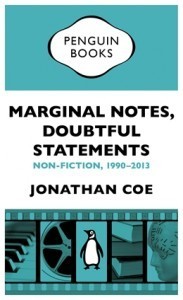 Anyway, the book is called Marginal Notes, Doubtful Statements, and collects a fair amount of my journalism from the last twenty years or more. Many of the pieces are book reviews, of course, but there is also quite a lot of stuff about film (Billy Wilder, Hitchcock, Lindsay Anderson) and music (Steve Reich, Brian Eno, the Canterbury scene). Plus some of the longest interviews I’ve given, a few autobiographical pieces, some political reflections, some general essays on the art of writing - it’s a pretty varied mix. E-readers (or at least Kindles) don’t allow you to do a page-count but I would think we have about 400 pages altogether.
Anyway, the book is called Marginal Notes, Doubtful Statements, and collects a fair amount of my journalism from the last twenty years or more. Many of the pieces are book reviews, of course, but there is also quite a lot of stuff about film (Billy Wilder, Hitchcock, Lindsay Anderson) and music (Steve Reich, Brian Eno, the Canterbury scene). Plus some of the longest interviews I’ve given, a few autobiographical pieces, some political reflections, some general essays on the art of writing - it’s a pretty varied mix. E-readers (or at least Kindles) don’t allow you to do a page-count but I would think we have about 400 pages altogether.
It was a surprisingly enjoyable book to put together. The earliest pieces - interviews with Steve Reich and Brian Eno - involved revisiting my old contributions to the music magazine The Wire from the late 1980s and early 90s. I could have gone even further back, and dug out my film reviews for the now-defunct Metropolitan magazine from 1988-89, but my memory is that these were not great. Nor did I decide, in the end, to include any of my film reviews for the New Statesman (from the mid-90s) or my earliest Guardian pieces in which I interviewed the likes of Anthony Burgess and Gore Vidal. Maybe for another time.
This will be my last blog of the year, I expect. It’s time to find my warmest winter clothes and get packing for my trip to the French Alps where, from 14-21 December, I shall be a jury member at the Festival De Cinéma Européen des Arcs. Very much looking forward to this. In the meantime, anyone who wants to make their friends happy by giving Marginal Notes as a virtual Christmas present can find it here or, indeed, here.
October 29, 2013
Autumn activity
Well, that was fun. Kind of exhausting, though. Many thanks to all the readers, from Birmingham to Brussels, from Beverley to Marseille, who came to meet me over the last few weeks to hear me read from Expo 58 and talk about it. I enjoyed all the events but I must say that, above all, presenting the novel in one of the spheres of the Atomium was a great, truly memorable moment in my life; and I must also give special thanks to my audience in Birmingham, where I always (despite having abandoned the place more than 25 years ago) seem to get a warm reception, with lots of nice discussions with people afterwards about The Rotters’ Club in particular. And now, finally, I can huddle down in my study as autumn kicks in and start thinking about what to write next …
Before that, though, a few things to mention:
This Thursday (October 31st) I’m doing a webchat on goodreads. You can go over there now and post questions about Expo 58 or indeed any of my books.
Last week finally saw the publication of an English-language edition of The Story of Gulliver, my re-telling of Swift’s Gulliver’s Travels for 8-12 year olds. The publishers are the wonderful Pushkin Press and they’ve done a beautiful edition. Sara Oddi’s illustrations are particularly stunning.
Advance warning of another book of mine that will be coming out soon. Three books in as many months! This one is a substantial collection of non-fiction called Marginal Notes, Doubtful Statements. It contains bits and pieces of journalism going all the way back to my days writing about music for The Wire in 1990, and coming right up to date with my most recent pieces on British satire and Flann O’Brien for the London Review of Books this year. There are quite a few political and autobiographical essays as well. Penguin are publishing it as an e-book only at the beginning of December. I’d say it would make a nice Christmas present but I don’t really know how you would go about wrapping it up …
July 24, 2013
Stirring at last
Just over a month now until the Italian and UK publication of Expo 58. I’ve been busy with my webmistress updating this website over the last few days, and before long we should have a page for the new book, along with new pages for my children’s books The Story of Gulliver (which will be published in the UK by Pushkin Press in October) and The Broken Mirror.
As if that weren’t enough, there will be yet another publication in December, when Penguin will be issuing an ebook called Marginal Notes, Doubtful Statements, which is an anthology of my journalism and non-fiction from the last twenty years.
All this flurry of activity requires me, of course, to abandon my life as a literary hermit and - for a few weeks at least - emerge blinking and squinting into the sunlight, so that I can talk to readers at a number of public events which are listed on the news page. In fact I’m really looking forward to these, especially my visits to Sarzana and Birmingham and, best of all, the launching of the Dutch and UK editions of Expo 58 at the Atomium in Brussels in October.
Wherever you are in the next few months - Italy, Belgium or Britain - please come along to meet me and get your books signed! (Or perhaps not , as I’ve a feeling it’s going to be the unsigned copies of Expo 58 which will be the collectors’ items in years to come …)
March 6, 2013
Expo 58 on the way
I’m pleased to say that the final copy-editing process has been completed on Expo 58, and the definitive text has been sent to the printers.
Meanwhile Penguin are on the point of unveiling Jonathan Gray’s fantastic cover design. Have a look here to see some of his sources of inspiration …
January 24, 2013
Happy Birthday, Bryan!
February 5th, 2013 will mark the eightieth anniversary of the birth of BS Johnson. All right, so I don’t suppose there will be an excess of bunting out in the streets that day, but many Johnson aficionados - myself included - are pretty excited about it. And to celebrate the occasion, Picador, Johnson’s publishers, have excelled themselves with a superb publishing programme. This is what we can look forward to:
- Single-volume reissues of his novels Albert Angelo, Trawl, House Mother Normal and Christie Malry’s Own Double-Entry. All the books feature eye-catching new covers by La Boca, and the first three have new introductions by, respectively, Toby Litt, Jon McGregor and Andrew Motion.
- A new, 471-page hardback volume of rare and out-of-print Johnson material called Well Done God! This has been edited by myself, Philip Tew and Julia Jordan, and contains a facsimile reprint of Johnson’s short prose collection Aren’t You Rather Young to be Writing Your Memoirs?, six stage and television plays (three of them previously unpublished) and more than one hundred pages of uncollected journalism.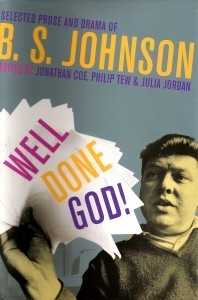
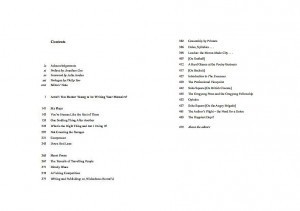
- An evening of readings, screenings and discussions at the British Library in London (15th February), to launch the reissued novels and Well Done God!, and to celebrate Johnson’s life and work. Confirmed participants include David Quantick, Julia Jordan and Johnson’s longtime friends and collaborators Michael Bakewell and Philip Pacey.
As if that were not enough BS Johnson goodness, the bfi have given me permission to leak a few details of their forthcoming DVD release on the Flipside label. This will come out on 15 April and will include, among other things, fully restored and cleaned-up versions of You’re Human Like the Rest of Them, Paradigm and Fat Man on a Beach;  rare TV documentaries by Johnson on his novel The Unfortunates and his namesake Samuel Johnson; and a recently recovered b/w home video recording of his long-lost television play Not Counting the Savages.
rare TV documentaries by Johnson on his novel The Unfortunates and his namesake Samuel Johnson; and a recently recovered b/w home video recording of his long-lost television play Not Counting the Savages.
Will Johnson fans be able to cope with so much excitement and activity at once?

